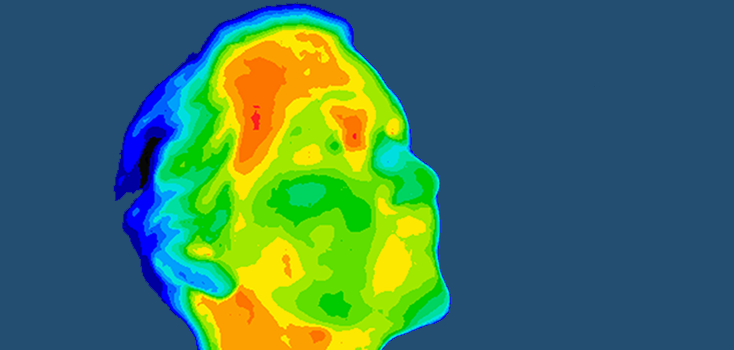
Thermal Screening Technology – Useful Support for Healthcare or Unnecessary Burden for travellers?
Due to the recent coronavirus outbreak in china, the focus of airport authorities has shifted towards the detection of potentially infected. A central component of this is the thermal heat screening of body temperature.
Status quo
Arriving passengers that are experiencing fever, cough and shortness of breath are currently being directed to report to the health units at the airport immediately. In addition to this, airports worldwide started screening passenger’s incoming from China. Primarily neighbouring countries that have a greater connection exchange with China, like Japan, South Korea or Malaysia are currently on alert, but also countries with higher tourist frequency from China have adopted this method, like the United States, Russia or India.[1]
A questionable Method
However, it is unclear how much the screening can actually help. Even though it can be seen as a precautionary measure to identify and target sick passengers, potentially infected with the new virus, no system is bulletproof. Thermal screening especially offers little benefit, while requiring considerable resources. A report noted, that in the SARS outbreak in 2003, airport screenings in Canada were unable to detect a single case of severe acute respiratory syndrome. Nevertheless, that disease killed 774 people, including 43 Canadians. This is important, as the new Coronavirus and SARS are both from the same family.[2]
Other Cases
The problematic idea of thermal imaging as support for healthcare is not new: 2019 a case generated attention where a woman at a fun park was able to detect breast cancer by accident. When she went through a thermal imaging room, she detected a “hot spot” on her left breast. Her suspicions were later by an oncologist confirmed, when she was diagnosed with breast cancer.[3]
Nevertheless the medical community is sceptical about thermal imaging in healthcare. The camera’s catch was an anomaly, according to Caroline Rubin, vice president for clinical radiology at the Royal College of Radiologists. While thermography cameras have the ability to map out aberrant heat and blood signatures associated with tumours, there is no evidence that they are sensitive or specific enough to be a trusted method to detect breast cancer. In this matter, they cannot replace a full physical body check by a professional doctor. [4] Therefore, it can be assumed that thermal imaging cameras at airports will not be of much help in containing the virus.
[1] Airport Technology (2020): Coronavirus: Airports worldwide start screening passengers from China. Available at: https://www.airport-technology.com/news/coronavirus-airports-screening-passengers-china/
[2] Npr (2020): Can Airport Screening Help Stop The Spread Of Wuhan Coronavirus? Available at: https://www.npr.org/sections/health-shots/2020/01/23/798919318/can-airport-screening-help-stop-the-spread-of-wuhan-coronavirus?t=1580115621353
[3] BBC News (2020): Breast cancer detected by thermal imaging scan in Edinburgh Available at: https://www.bbc.com/news/uk-scotland-edinburgh-east-fife-50139540
[4] UCSF (2020): A Recent Story Reminds Us That Thermography is Not a Substitute for Mammography. Available at: https://radiology.ucsf.edu/blog/recent-story-reminds-us-thermography-not-substitute-mammography

